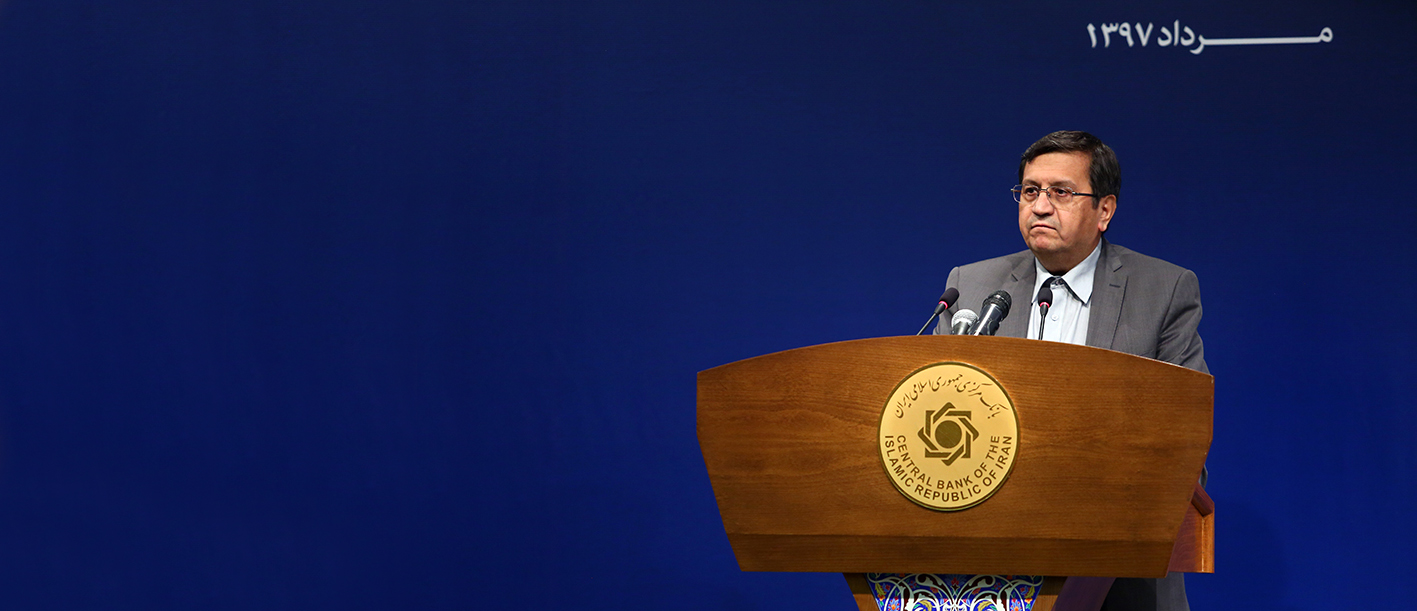Central Bank of Iran: New Forex Policy Coming

EghtesadOnline: Abdolnasser Hemmati, the newly-appointed governor of the Central Bank of Iran, said the ongoing volatility in the currency and gold markets is "unusual" and a byproduct of "enemies' conspiracy".
The statement, published on CBI's website on Monday, said CBI was monitoring these developments "very closely" and believes that they do not fit the economic reality and the forex strength of the country.
The statement noted that CBI would soon launch measures outlined by Hemmati which will be implemented "in the coming days".
During his inauguration ceremony on Saturday, Hemmati said his priorities include protecting the central bank's reserves, curbing inflation, addressing problems besetting banks' balance sheets and stopping the unbridled surge in liquidity, Financial Tribune reported.
Unlike his predecessor Valiollah Seif, who mostly ascribed the currency market volatility to non-economic factors like political influences, Hemmati said the current conditions are byproducts of "imbalances in banks' balance sheets", "unwise decisions for using monetary tools" and "uncertainty in enforcing forex policies".
He said that in order to control the forex market, he has devised a plan and discussed it with President Hassan Rouhani, which will soon be unveiled.
Apart from those statements, not much more is known about Hemmati's plans for calming the forex market. However, expanding the secondary market and ending the allocation of cheap currency seem to be at the center of those efforts.
Hemmati has so far remained less willing to comment on the market situation than his predecessor and has apparently left the official comments to be released by the bank's Public Relations Department.
New Package
Also on Monday, First Vice President Es'haq Jahangiri announced that a new forex package is being devised and sought to assure the markets that the prevailing conditions are not permanent.
The Iranian currency hit a record low on Sunday at 100,000 rials to the US dollar on Sunday one day after Hemmati formally took over as the new CBI chief. The rial has lost more than half its value against the dollar in just four months, having broken through the 50,000-mark for the first time in March.
The currency collapse intensified after the US announcement in May that it was pulling out of the 2015 nuclear deal, which had lifted certain sanctions in exchange for curbs to Iran’s nuclear program.
The US is set to reimpose its full range of sanctions in two stages on Aug. 6 and Nov. 4, forcing many foreign firms to cut off business with Iran.
The gold coin rally continued on Monday with the benchmark Bahar Azadi fetching close to 46 million rials ($1,045 at the official exchange rate), according to Tehran Gold and Jewelry Union's website. Later in the day, however, the website stopped showing prices altogether.
The US dollar's exchange rate was also reportedly hovering at 119,000 rials in Tehran's unofficial market.
The government decided to unify the US dollar's exchange rate at 42,000 rials on April 9 in response to volatility that saw the rial sink to all-time lows against the greenback.
At the time, it also banned the physical trade of hard currency by exchange shops and the trading of the US dollar at any rate other than the official rate.
However, after a deluge of demand for imports at the attractive unified rate, the government had to allow limited free forex trade through a secondary market at "negotiated rates" between exporters and importers of similar small-scale goods.
The secondary foreign exchange market, which began work earlier this month, also failed to calm the market in an effective way since, according to analysts, it lacked enough depth and scope.
Fars News Agency quoted an unknown official on Monday that the plan to expand the secondary forex market had been sent to President Rouhani and awaited his approval.
The official said the president has his own reservations about accepting the plan, lest the forex rates surge even further.


